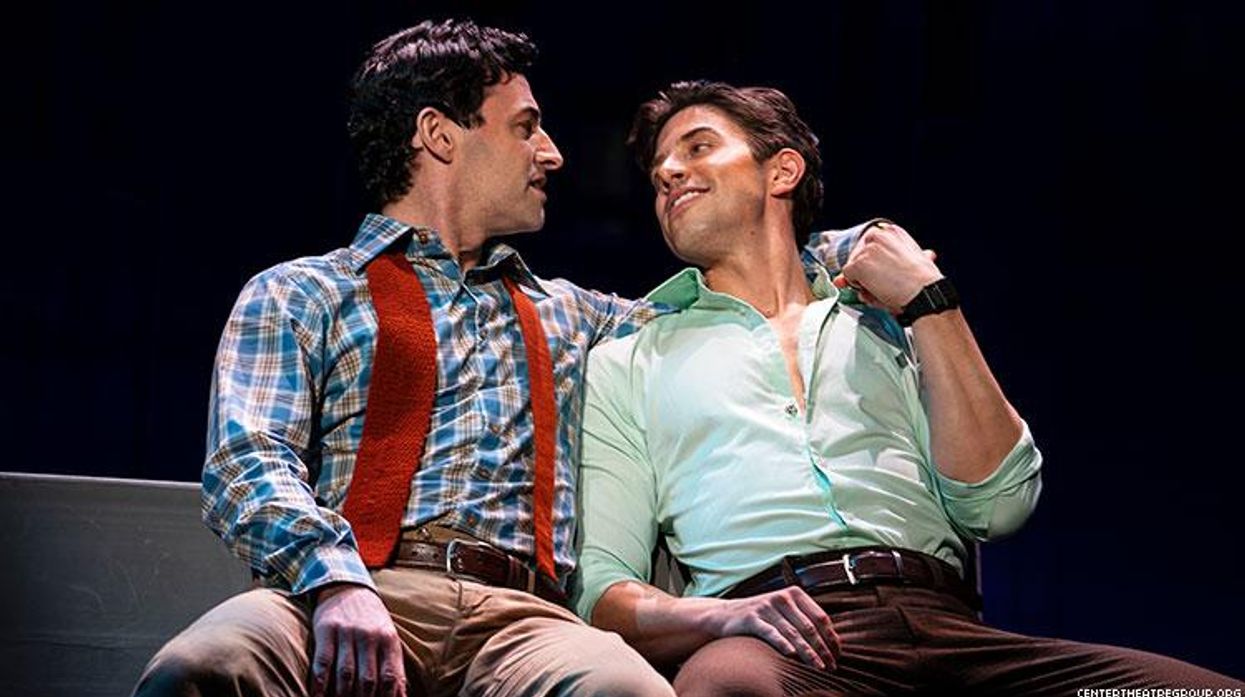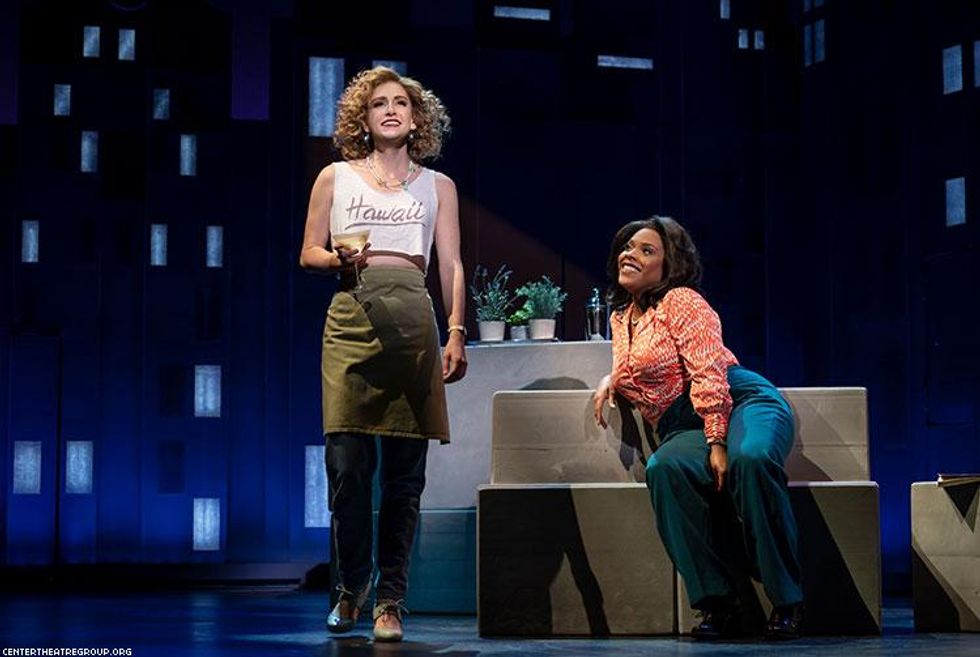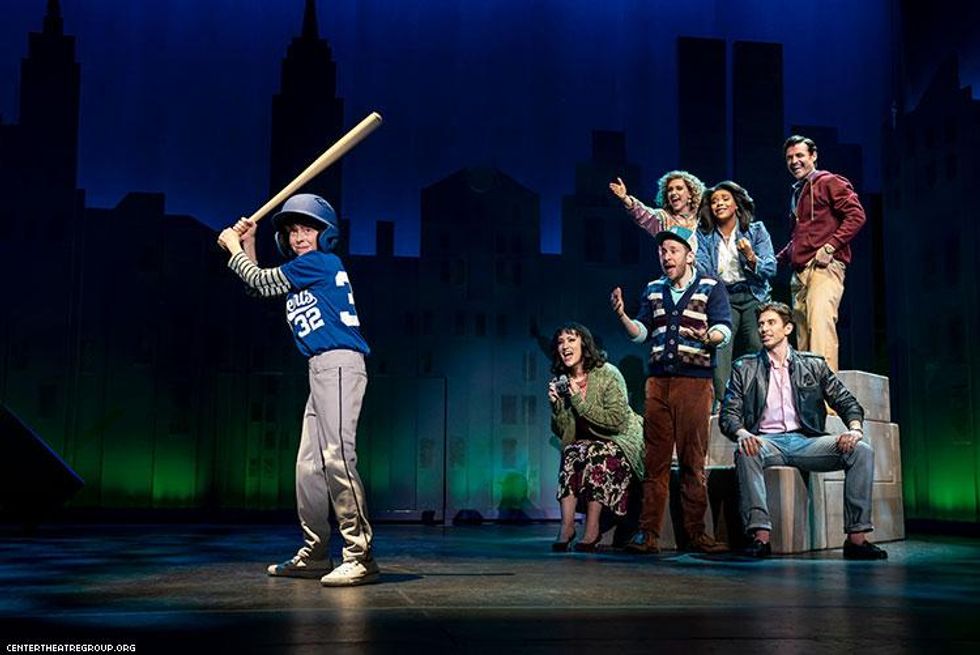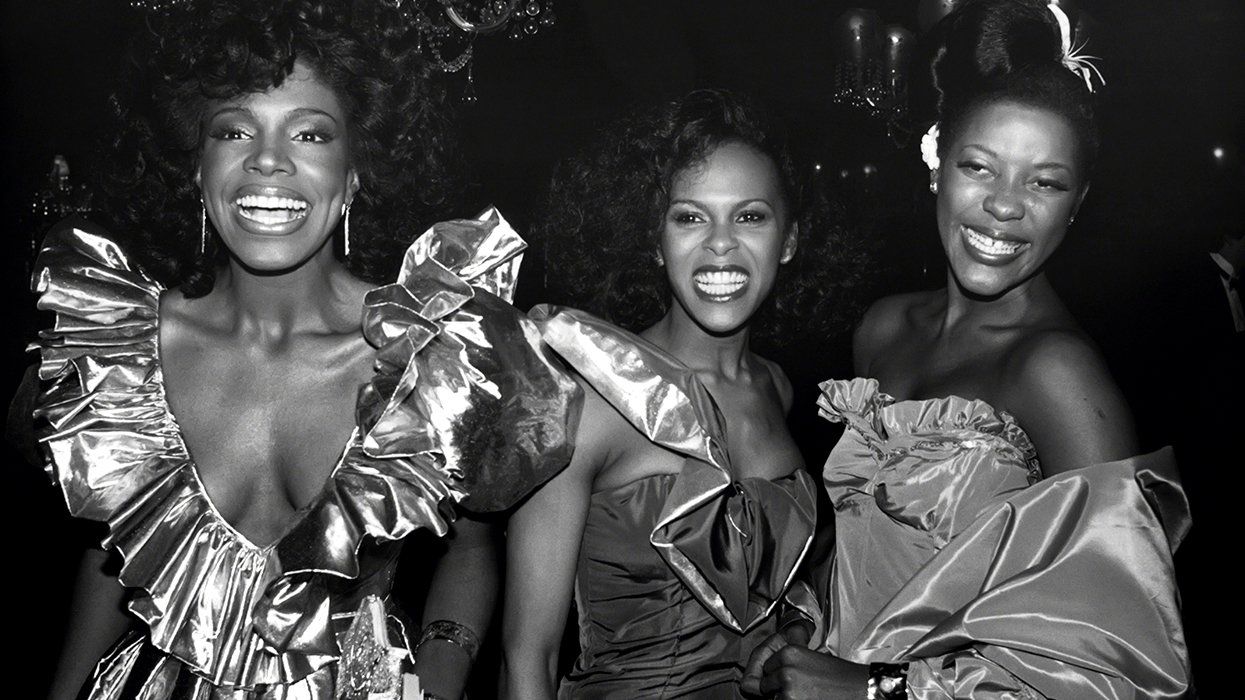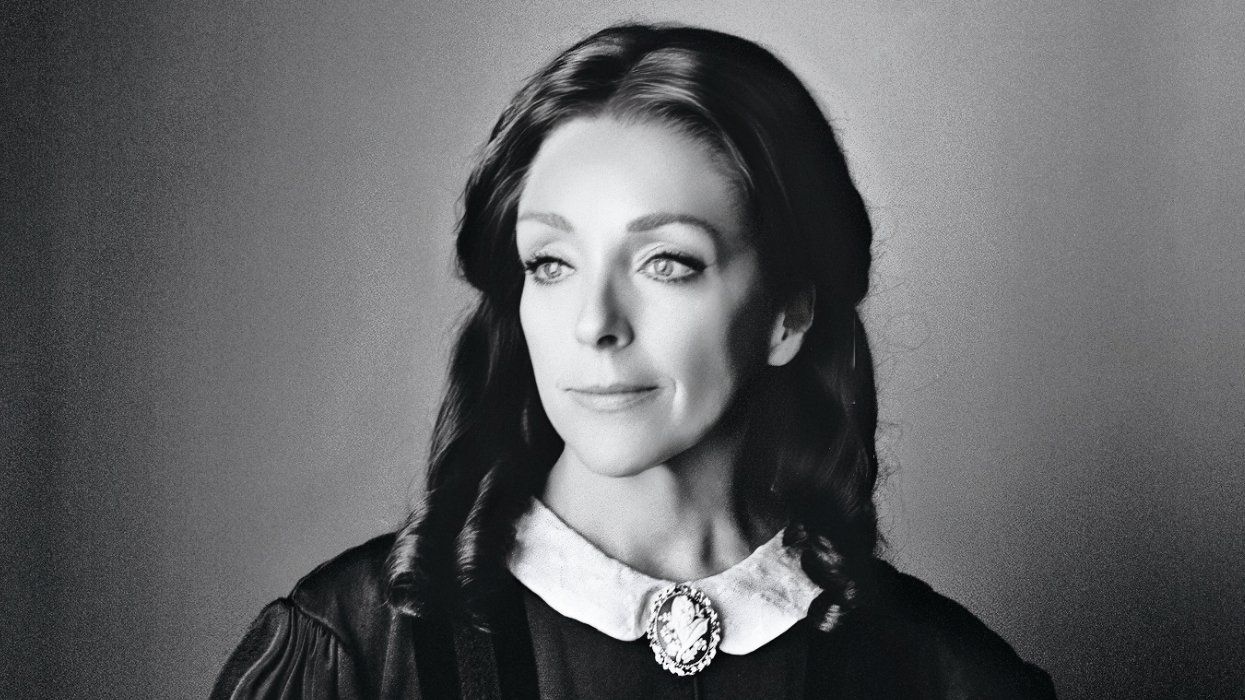"I'm trying to keep sane as the rules keep changing. Families aren't what they were," sings Trina, a mom raising her bar mitzvah-age son with her ex-husband Marvin, his new boyfriend Whizzer, and her new boyfriend -- the psychiatrist -- Mendel. Composer and lyricist William Finn and James Lapine, who wrote the book and directed March of the Falsettos in the late 1970s, created a story of love and family that predated by nearly 40 years the modern families that proliferate in inclusive pop culture today
Cut to Falsettoland, which Finn and Lapine created 10 years after March of the Falsettos as an extension of the story that began with In Trousers in the '70s, and the lesbian doctor Charlotte sings "Something bad is happening." She's come home to her partner, the kosher caterer Cordelia, from a day at the hospital circa 1981 where young men continue to pour in with a mysterious illness. Written nearly a decade into the AIDS epidemic but taking place just two years after March of the Falsettos, the song taps into the fear of the unknown that plagued the early days before there were words for HIV and AIDS. By the early '90s, March of the Falsettos and Falsettoland were combined into a single musical that would become Falsettos and would leave the era's audiences laughing and sobbing at both the show's thoughtful treatment of queer extended family and the looming AIDS epidemic.
With the help of wunderkind Jordan Roth, president of Jujamcyn Theaters and the producer who shepherded Frozen, Mean Girls, and the revival of Angels in America to Broadway, Finn and Lapine's work that both anticipated modern families and is a stark reminder of the plague that galvanized queer communities premiered in San Francisco last week and heads to Los Angeles in mid-April.
On the day of the Falsettos first national tour premiere in San Francisco in late March, Finn, Lapine, and Roth were reminded of the show's early days of a production at Connecticut's Hartford Stage that ended with the unveiling of panels of the AIDS Memorial Quilt.
"I was [just] talking with Lapine about that Hartford production, because here in San Francisco, they brought two panels of the quilt, the AIDS quilt," Roth tells The Advocate. "They are on display in the lobby and I literally have chills in my body."
There was no predicting that the Falsettos revival that starred Christian Borle, Andrew Rannells, and Stephanie J. Block would arrive on Broadway on the cusp of more turmoil for LGBTQ people following the 2016 election. But the revival, with a first act that predates the incipient stages of the epidemic by about two years with Marvin coming to terms with falling in love with Whizzer and leaving Trina, with whom he has a son, was right on time. The second act, which sees the family planning for Jason's bar mitzvah as Dr. Charlotte alludes to the AIDS epidemic and Whizzer falls ill, was also prescient, not only because of the current political climate but at a time when prevention methods such as PrEP have often relegated important conversations about HIV and AIDS to the back burner.
Audrey Cardwell and Bryonha Marie Parham
"In terms of the story of what was going on in the '80s, or about to go on in our play, it's a good thing to remind people of and to pass on to further generations," Lapine tells The Advocate about the current tour. "I'm thrilled that the show has lasted this long and is being embraced again, just to remind us of what time was like there. And then also that it's, in some ways, not a period piece. What it has to say about people and sex and family is still relevant to us today."
For a time in the late '90s and through the 2000s, as lifesaving drug cocktails were introduced, narratives around HIV and AIDS in pop culture were hard to come by. But even the Falsettos revival that premiered three years ago telegraphed last year's emergence of period pieces like Bohemian Rhapsody, Can You Ever Forgive Me? and Mapplethorpe on the big screen and FX's Pose on television, all of which brought stories of survivors and those lost to the epidemic to light.
"I think maybe after the '80s, '90s, it was such a traumatic time, the generation who lived through [the height of the AIDS epidemic] didn't necessarily want to revisit it," Lapine says. "But I think now we have perspective on it."
"It's important [to note] that a lot of what's happening today is because of what happened during the '80s. [Society] didn't know who was gay for the most part," Finn says regarding closeted people who were exposed as gay through contracting HIV. "When your neighbor or your uncle or your cousin all of a sudden starts dying..."
Speaking with the Advocate minutes prior to a matinee of Falsettos in San Francisco, Finn, who also created The 25th Annual Putnam County Spelling Bee, and Lapine, who directed that show along with Stephen Sondheim classics including Into the Woods and Sunday in the Park With George, say they sound like "old farts." Their concern: that they've encountered young queer people who, through breakthroughs in treatment and prevention, don't have to truly be aware of the impact of AIDS on the community.
"First of all, it [AIDS] pretty much decimated the artistic community, which was hit very hard by it. I think it's interesting that a lot of young gay people don't realize the importance of that here in that period. It's interesting for them to have a sense of the reality of it," Lapine says. "One of the reasons I wanted to do [the revival] ... I was watching The Normal Heart with my assistant, who is a very polite woman, just graduated from NYU. At intermission, she just looked at me and she said, 'Well, I kind of know about AIDS, but was it really like this?'"
The first national touring company of Falsettos
"It's important that [younger generations] know that what is happening today, the freedoms that we have today, are all because of time we spent during the '80s," Finn adds.
While Lapine and Finn acknowledge their perspective of bearing witness to the devastation, Roth, who is 43 and was a teen obsessed with the show when it came out, says that Falsettos couldn't be more of the moment, which influenced his decision to revive it.
"Whenever you're reviving a show, it's always, Well, is it going to be relevant today?" Roth says. "It turns out that Falsettos was so way ahead of its time that it's kind of shocking that it was as successful and as beautifully received as it was originally. Really, [Falsettos], by all rights, would have been written today. It is so exactly what we are thinking about, grappling with, talking about, struggling with. What is the family?"
Finn and Lapine's creation was a benchmark not only for its depiction of extended queer families but also for its inclusion of women in gay narratives. While a show like The Boys in the Band in the late '60s was groundbreaking in terms of being among the first to portray gay life, Falsettos is also sympathetic to the character of Trina. She grapples with her husband leaving her for a man in the first act in the tour de force musical number "I'm Breaking Down" and also sings about unconditional love in "Holding to the Ground" as her heart breaks for her son Jason and for Marvin as it becomes clear that they are going to lose Whizzer. Beyond that, the show was also one of the first to portray lesbians in musical theater with the characters of Charlotte and Cordelia, an inclusion that pays homage to queer women who stepped in to help care for men with AIDS.
"Gay men's lives have a lot of women in them. This is important to come into the conversation," Finn says of how there wasn't even a question as to whether or not to include women in the story. "They should not be ignored."
Roth agrees that none of the stories Falsettos represents can be extricated from the other.
"It's about us and is all of us, men, women, gay people, lesbians, parents, children. That's our family. And you don't tell half the story of the family -- rather, you don't tell the story of half the family," Roth says. "You can say with great certainty that Falsettos is Marvin's story, is Trina's story, is Whizzer's story, is all of these people's stories."
"That's why it stays with us. The us there is all of us," Roth adds.
The first national tour of Falsettos runs at San Francisco's SHN Golden Gate Theatre through April 14 and at Los Angeles's Ahmanson Theatre from April 16 through May 19.
Watch a clip from the first national tour below.
